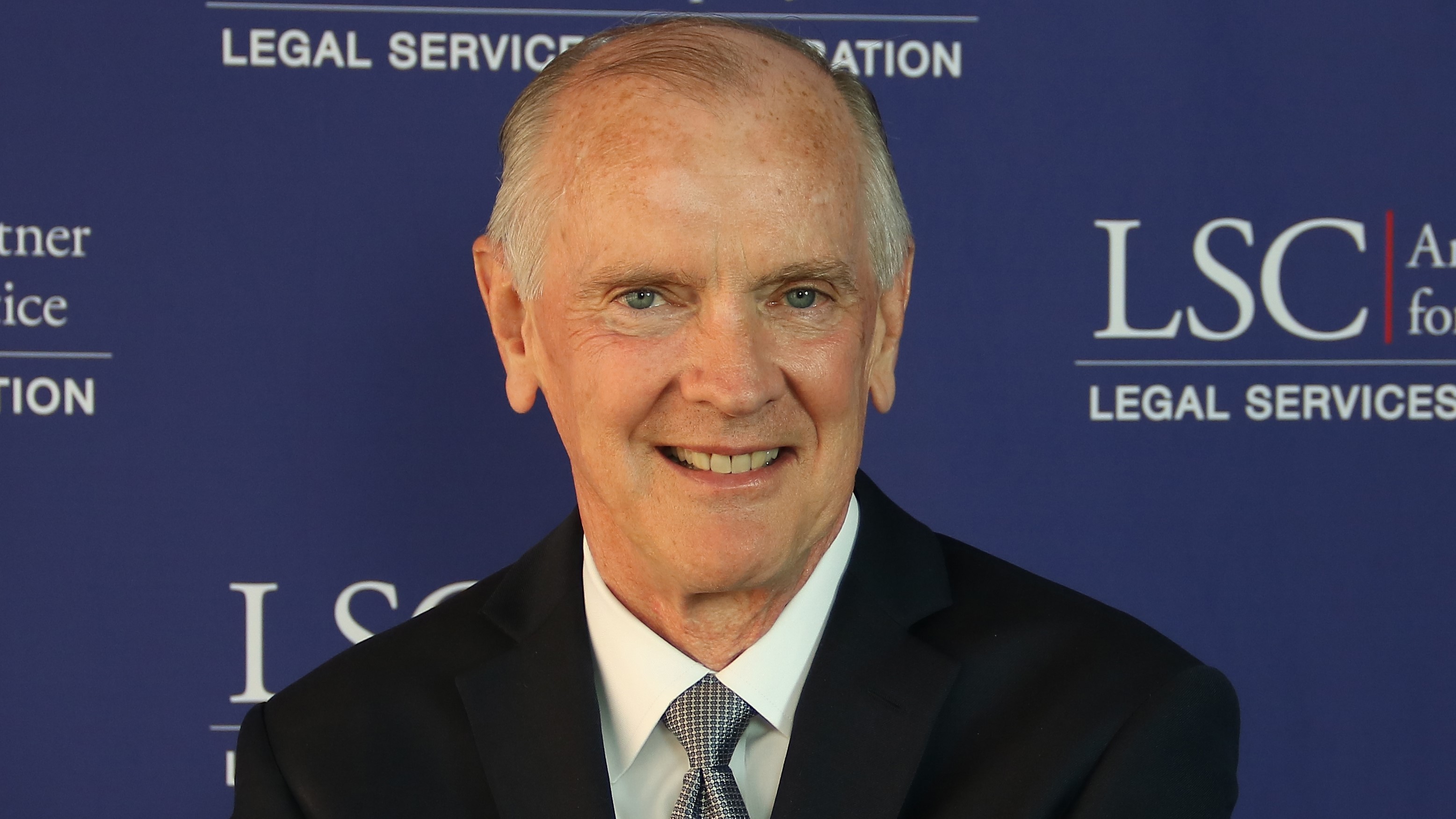James Sandman, who as president of the Legal Services Corporation for the past nine years has championed innovation in the delivery of legal services and the use of technology to enhance access to justice, is stepping down.
In an email this morning to executive directors of LSC grantee organizations, Sandman said that his last day will be Feb. 19. After he leaves, Ronald S. Flagg, the LSC’s vice president for legal affairs, general counsel and corporate secretary, will step in as interim president as the LSC board begins a national search for a permanent replacement.
Just yesterday, I posted Jim Sandman’s Five Requirements for Tech to Improve Access to Justice, a report of his talk last week at the LSC’s Innovations in Technology conference in Portland, Ore. In December, Sandman was my guest on my LawNext podcast.
“I will turn 70 next year, and I have other things I’d like to do before I retire,” Sandman wrote in his email. “I’d like to teach. I’d like to speak, write, and advocate beyond what I’m currently able to do. I’d like to do more to improve public education in the District of Columbia. … I don’t know exactly what I will be doing, but I am certain that I will continue to be actively involved in, and a voice for, improving access to justice.”
Shortly after he became LSC president in 2011, Sandman convened a summit of leaders to explore how best to use technology in addressing access to justice. In 2013, that effort produced the seminal Report of The Summit on the Use of Technology to Expand Access to Justice, which concluded, “Technology can and must play a vital role in transforming service delivery so that all poor people in the United States with an essential civil legal need obtain some form of effective assistance.”
Also during Sandman’s tenure, LSC established the Office of Data Governance and Analysis to coordinate legal aid data collection and analysis. In 2017, the work of that office resulted in the release of another seminal study, The Justice Gap: Measuring the Unmet Civil Legal Needs of Low-Income Americans, which documented the extent of the justice gap in the U.S., including that 86% of the civil legal problems faced by low-income Americans in a given year receive inadequate or no legal help.
Sandman also helped expand Congressional support for LSC’s grants Technology Initiative Grants (TIG) program, which provides grants to fund technology projects that provide greater access to legal assistance and information for low-income Americans, and he also helped expand the LSC’s annual Innovations in Technology Conference, the largest event in the country dedicated to expanding access to justice through technological innovation.
Before joining LSC, Sandman was general counsel for District of Columbia Public Schools and spent 30 years at the law firm Arnold & Porter, serving as its managing partner from 1995 to 2005.
“I am grateful to my dear friend and partner John Levi and to the LSC board for having given me the opportunity of a lifetime,” Sandman wrote. “I am grateful to my LSC colleagues for their help, support, professionalism, and passion for our mission. And I am grateful to all of you. The opportunity to work with, learn from, and be inspired by you has been one of the greatest blessings of my life. Thank you for all you have done for me. I am a better person for knowing you.”
 Robert Ambrogi Blog
Robert Ambrogi Blog